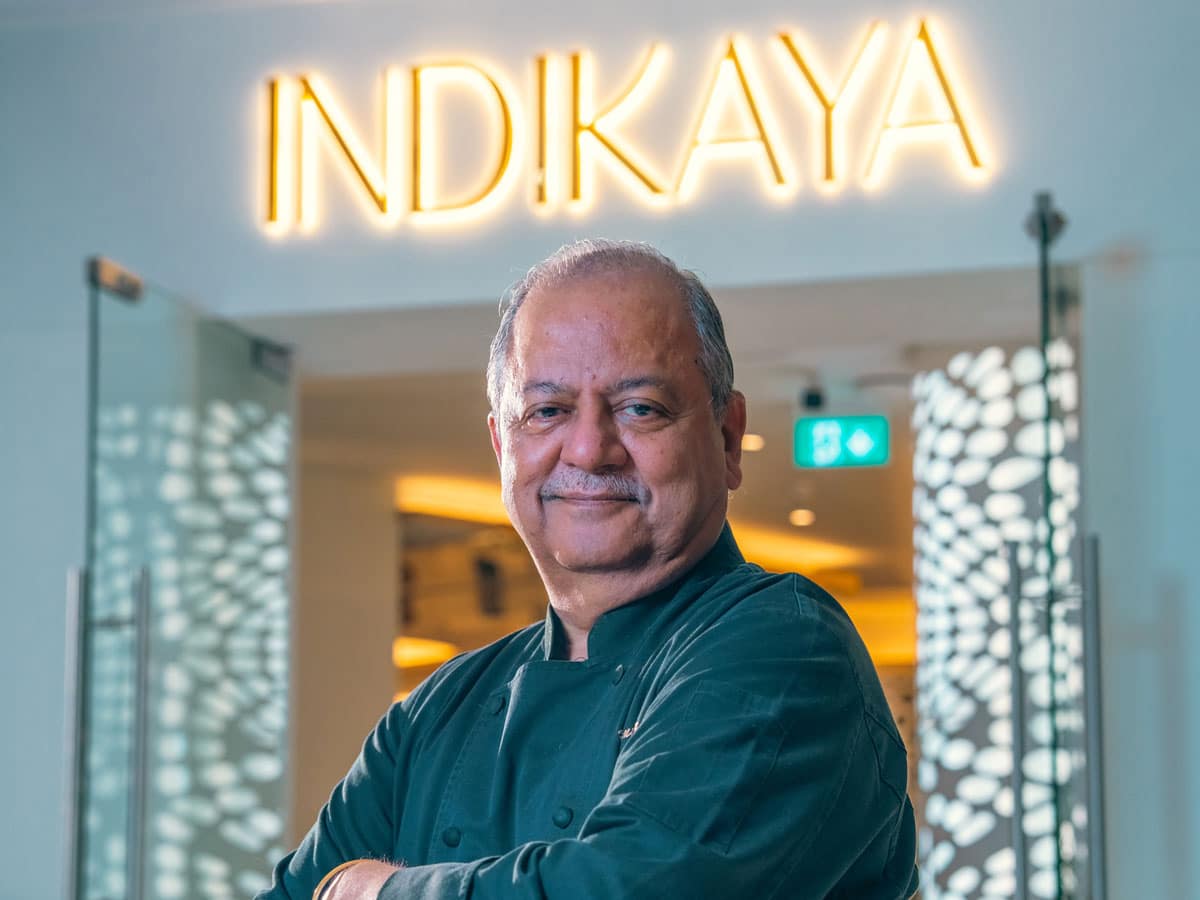With over 50 years in the culinary world — including 42 as grand chef with the Taj Group — chef Hemant Oberoi remains one of the most enduring forces in modern Indian cuisine.
From leading state banquets to launching concepts like Martabaan in Abu Dhabi and the recently opened Indikaya in Dubai, his career has been defined by quiet discipline, thoughtful innovation, and a commitment to training the next generation.
Here, he distills that experience into seven hard-earned lessons, covering everything from the science behind flavour to the power of humility and originality in the kitchen.
1. Food is a science first, and an art later
True mastery begins with understanding the science of cooking. One must learn the basics of cuisine well. If you don’t understand the temperature of oil for tempering, how can you bring out the flavours from the ingredients? Once you’ve grasped the elements of cooking — ingredient behaviour, temperatures, and techniques — creativity and passion naturally take over, elevating the dish with artistry and finesse.
2. The three Ps: Passion, Pride, and Perseverance
The hospitality industry is driven by passion — for food, for flavours, for people. You cook from the heart and serve with warmth. Pride in your craft is essential, but I am cautions against letting pride turn into arrogance. Take pride in your product, but stay humble. Humility fosters growth.
3. Training is everything
Constant learning is non-negotiable. Training is an integral part of our industry. Learning should never stop — you’re only as good as yesterday if you don’t evolve. Investing time in mentoring teammates creates a strong, loyal backbone for any culinary operation. Train your colleagues; they are your pillars of strength.
4. Innovate or fade
In a world of fierce culinary competition, innovation is what keeps chefs ahead. Be different. Be a leader. Don’t copy. Originals stay original — Xeroxes fade. For Oberoi, innovation must come with purpose. Fusion should be thoughtful. Every rolled dish isn’t sushi. Every creation must be rooted in logic and culinary integrity.
5. Every dish should tell a story
Food should never lose its identity. Each dish should carry the history and trail of its cuisine. Respect the origins, the creators, and the seniors who came before us. Dishes that go viral on Instagram, but lack taste, won’t stand the test of time.
6. Respect and responsibility
Culinary creation is both an honour and a responsibility. Respect your ingredients, your heritage, and the work of those before you. This respect translates to authenticity and taste, both essential in creating timeless dishes.
7. Be open to criticism
I encourage all chefs to embrace feedback. Everyone has a different palate — you can’t please everyone, and constructive criticism helps you grow. It pushes you to reflect, refine, and reach higher standards

